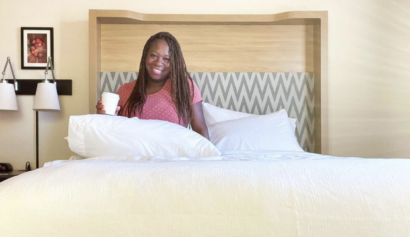My confession: I yell at my kids. I yell in the house, sometimes closing the windows so the neighbors won’t hear. I yell in the car. I try not to yell in public, but I’m great at that poisonous, through-the-teeth hiss that’s almost as good. I also threaten to withhold treats, to send a misbehaving child to bed early, and to turn the car right around and drive straight home — and then I somehow end up never following through.
So I tend to dread it when a parent asks me questions about discipline — especially if she wants to know what I do with my own kids. Then, as so often happens in this life, I have to choose between honesty and the professionally correct party line. Because while my own disciplinary techniques (yelling and making largely empty threats) have the patina of antiquity and have worked to at least partially civilize my three children, they’re not recommended by any pediatric organization or serious parenting expert.
When I find myself offering what I know is the correct by-the-book advice, I’m nervously looking over my shoulder for the reality-TV crew with the surprise footage of my own family on vacation. (Why, who is that mother, waving her arms and screaming? Can it be our very own self-righteous Dr. Klass, who just told us that time-outs should last one minute for every year of a child’s age and always be promulgated with calm firmness?)
The miserable truth is this: I’ve never succeeded at putting one of my children in a time-out. I don’t understand how to do it. For starters, what makes a child actually stay in one place? Could it be the parent’s moral authority? (Maybe that’s my problem!) Yet I’m told that in daycare each of them cheerfully time-outed when necessary. Still, even in the depths of my shame, I accept the job of talking to parents about discipline, tempering good advice with realism and, above all, the understanding that you can’t do anything for a small child just once and assume it’s done for good — not wiping her bottom, helping her pick up her toys, showing her how to hold a fork…
Read more: Perri Klass MD, Parenting

